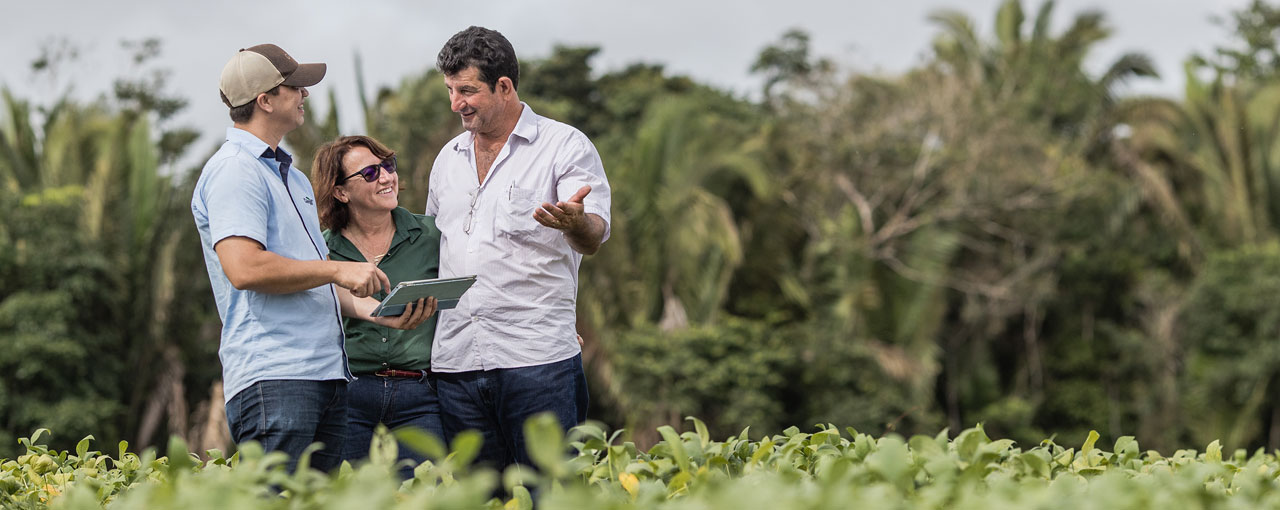Sustainable Soy Initiatives & Progress
A more sustainable soy supply chain starts with the farmer.
At Cargill, we’re focusing our efforts where they’re going to have the biggest impact on deforestation — with farmers on the ground. That’s why we’re partnering with local organizations to develop innovative solutions that are economically viable for farmers, their communities and can improve sustainability across the entire soy supply chain.
Increasing Traceability in the Soy Supply Chain
We are committed to not just building a deforestation- and conversion-free supply chain, but a more traceable and transparent one, too. That’s why we’re currently identifying the locations of all of our farm direct, and point of procurement for our indirect, suppliers in the countries that contain the high-risk biomes of the Amazon, Cerrado and Gran Chaco, as well as Uruguay, using georeferenced single points. We aim to complete this process in 2020.
These three biomes cut across several countries and it’s important to recognize that they are vastly different in terms of their natural characteristics and the local communities that depend on them. We started with Brazil and have completed our mapping of our supply chain — with georeferenced single points — six months ahead of schedule.
To get more precise in the future about the sources of the soy we purchase, we will go beyond the single-point mapping of our suppliers and ultimately conduct polygon mapping for farms that sell to us.
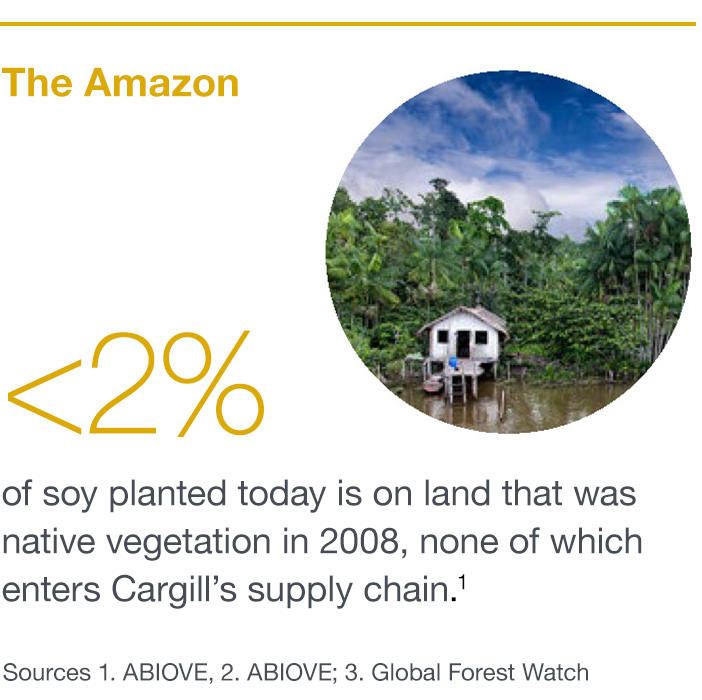
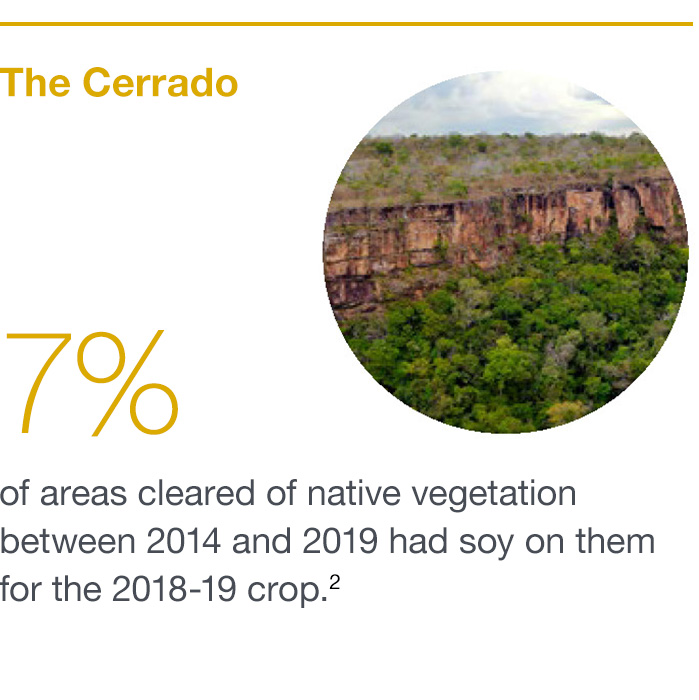
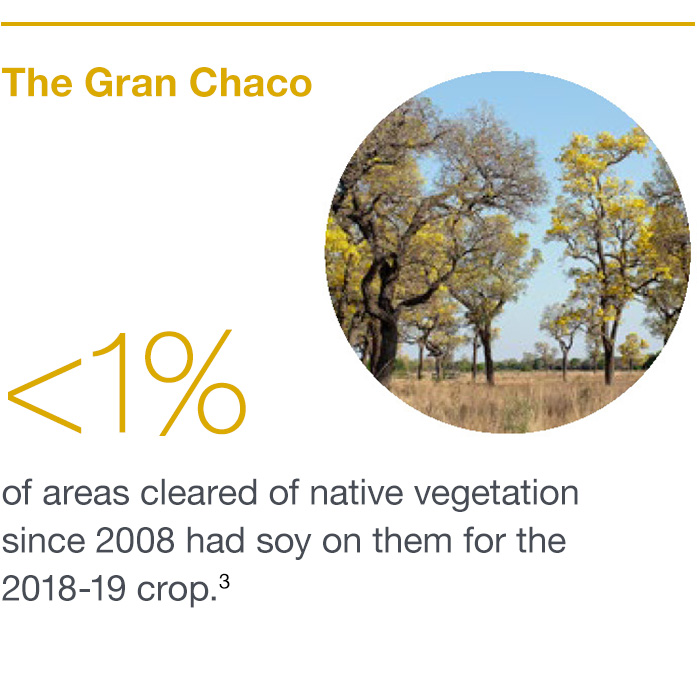
Mapping Our Supply Chains
Learn more about our progress in mapping our supply chains and how we are focused on Transparency.
Certified Deforestation- and Conversion-Free Soy
Our TripleS program (Sustainably Sourced and Supplied) only sources soybeans from farms that are independently certified to be Deforestation- and Conversion-Free and meet exceptionally high standards for agricultural practices, labor and environmental impact. And farmers are encouraged to continuously improve their operations by working with our nonprofit partner, Solidaridad South America, an organization that delivers innovative solutions to increase production in an efficient and resilient way that fosters inclusive economic development and protects conservation areas.
Accelerating Climate Solutions with Farmers
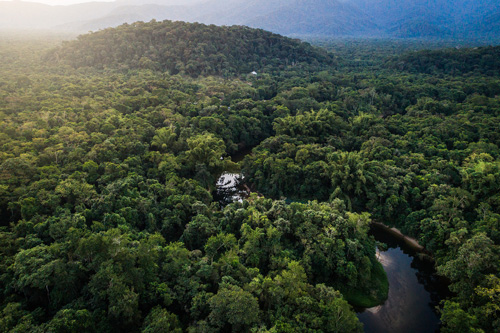
$30 Million Fund to Protect South American Forests
The $30 million Land Innovation Fund for Sustainable Livelihoods is establishing partnerships to develop solutions that help protect forests across South America. To administer the fund, we selected Chemonics International, a trusted international development organization with experience in more than 150 countries and a strong track record operating in complex environments. Chemonics will provide sound financial management, strong technical oversight and a far-reaching network to attract additional partners to the fund. We are working diligently to draw applications from startups and innovators with the best ideas that can be brought to scale.
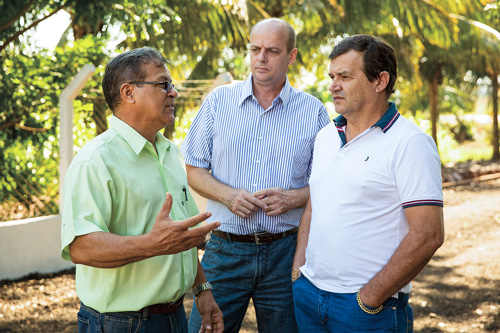
Climate Ventures for Green Entrepreneurship in Brazil
We know that any climate solution has to include farmers, so we are working diligently to draw applications from startups and innovators with the best ideas that can be brought to scale. In Brazil, we’re partnering with Climate Ventures, a nonprofit that has played a significant role in developing an ecosystem for green entrepreneurship in Brazil that will contribute to the decarbonization of the nation’s economy. Climate Ventures studied more than 500 climate-related startups at work in Brazil today and the areas where they are focused, so we can help the most innovative ideas thrive. Climate Ventures’ report, titled “The Green Wave” is helping illuminate new ways forward.
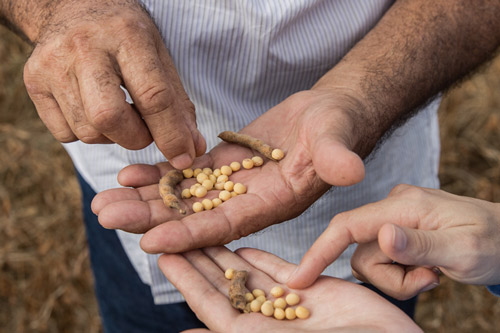
Training for small family farms
Cargill and the Instituto Biosistêmico (IBS) have partnered since 2011 to bring no-cost training to Brazil’s smallholder farmers to help them grow their soybean crops using more sustainable methods. Technical visits to farms by IBS specialists analyze soil, erosion, crop rotation and fertilizer applications. In addition to greater productivity and protecting the natural resources of their farms, farmers also receive a premium for their soy. Across six states in the 2019-2020 crop season, the family farming program benefitted more than 1,700 farmers directly and 700 farmers within cooperatives.
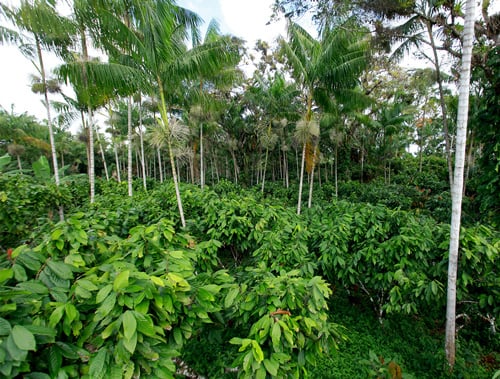
Sign Up for Our Newsletter
Updates about Cargill’s efforts to protect forests delivered to your inbox.
Sustainable Soy
Collaborating to end deforestation, protect native vegetation and advance sustainability in our soy supply chain.
Land Use and Forest Sustainability Advisory Panel
Collaborating to end deforestation and improve sustainability across all our supply chains.
Soy Community Partnerships
Learn how Cargill is helping to eliminate deforestation in the soy supply chain by putting the economic viability of farmers and their communities first.

